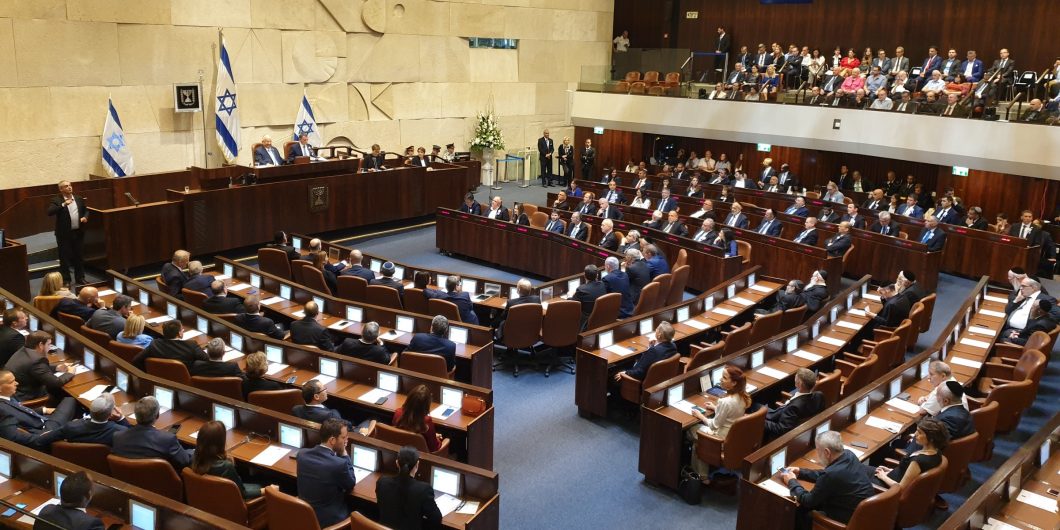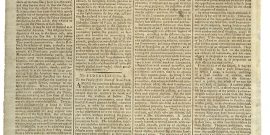Between Liberalism and Democracy
The new Israeli government has proposed legislation that would rein in the power of its unelected judiciary. The reform would prevent the Supreme Court from striking down laws simply because they were “unreasonable.” It would allow the Knesset—Israel’s legislature to overrule decisions by a majority vote. It would reform the current judicial selection process where judges have a huge say in choosing their successors and instead allow the Knesset much greater leverage in selection.
Not surprisingly, these proposals have been very controversial not only in Israel itself but around the world. But perhaps more surprising has been a constant refrain: the proposals are undemocratic. Even the United States Secretary of State implied as much on his latest visit, expressing concern about the “core importance of democratic principles and institutions.” Such criticism on the surface seems very odd. Under the simple definition of democracy, these proposals seem quite democratic, transferring more power to the representatives of the people from a self-perpetuating oligarchy. And deployment of this kind of incongruous democratic critique is not unique to Israel. When Poland reformed its judiciary to give more power to its representative branches, its actions were called anti-democratic. Even the overruling of Roe v. Wade has been termed anti-democratic, although Dobbs returns abortion policy to the choices of the citizens of several states.
Perhaps this linguistic inversion can be dismissed just as the transformation of a political concept into an epithet. Fascist is often used as a term of opprobrium to attack whatever right-wing idea a left-wing speaker dislikes; perhaps “undemocratic” is following a similar trajectory. But in my view, the reasons are more complicated. What passes for the modern ideal of democracy in the West is not the pure rule of the people—what defined democracy in classical times. Instead democracy today is a shorthand for representative liberal democracy. And the problem is that liberalism is in substantial tension with democracy because it seeks to put (some) liberties beyond (some) degree of democratic control. Thus “antidemocratic” can be used to mean that the lines drawn between liberalism and democracy are the wrong ones. But the concept of liberal democracy in itself does not tell us which are the right ones and thus the criticism is indeterminate and always available as a partisan attack.
Liberal Democracy or Liberal Democracy?
One way to try to make the lines more determinate is to understand democracy as the main value in liberal democracy with liberalism only an instrument for promoting democracy. Thus, it is sometimes said that freedom of speech should be limited to political speech because only that kind of speech is necessary to make democracy work. John Hart Ely wrote a famous book, Democracy and Distrust, justifying the seemingly expansionary liberalism of the Warren Court as an effort to perfect democracy by protecting voting rights and getting rid of legislation that was based on stereotypes rather than real democratic deliberation.
But it’s not clear how much this helps make the lines more determinate. First, many liberties may help democracy flourish, but they nevertheless have costs that may motivate even well-meaning majorities to suppress them. Art and literature as well as political speech help people imagine different futures that aid in political choices. But such broad free speech protections may also protect indecency and other vices that may make society less civilized. It is thus hard to draw the line a priori to determine how far free speech should extend to advance democracy. Moreover, democracy itself is a contested concept. How far should we be concerned to protect deep deliberation at the expense of a rawer reading of the majority’s preferences?
We could instead try to draw lines that make democracy the instrument of liberty rather than the other way around. Historically, many societies were concerned to protect liberties against rulers and turned to democracy because it was a better mechanism than monarchy and other forms of government that could easily be exercised by personal fiat.
This view of the relationship between democracy and liberty naturally leads supporters to be more comfortable with constraints on the democratic process, the protection of rights being primary to begin with. Moreover, mechanisms that slow down the democratic process (like bicameralism), or fragment it (like federalism), help prevent democracy from acting by majority fiat, which is not so different from the personal rule that advocates of liberty find such a threat.
The liberalism in modern liberal democracy is so important that, in the terms of classical political philosophy, it transforms a democracy into a mixed regime.
But again, it is not very clear where to draw the lines. Once one recognizes that democratic choice may be important to protect liberty, making democracy too rigid or providing too detailed a set of rights may undermine democracy so much that it leads to a backlash against liberty.
A final view is that both liberty and democracy are important human goods. Neither can be reduced to being the instrument of the other. The ability to participate with others in governance is part of what allows us to flourish in society: man is a political animal and democracy is thus as conducive to his well-being as eating. But liberty—the ability to pursue projects of one’s choice and possess property that one has earned is also part of what makes for a flourishing life.
This view of the relation between democracy and liberty has its attractions: It is intuitively plausible that a creature that is social, yet also has a strong sense of self, should have a political order that respects both his individual and social natures. But such a pluralism of political values makes it even less obvious where to draw the line between democratic control and individual liberty.
Liberal Democracy as a Mixed Regime
In any event, the liberalism in modern liberal democracy is so important that, in the terms of classical political philosophy, it transforms a democracy into a mixed regime. In particular, our modern mixed regime mixes democratic and oligarchical elements. By their nature, rights empower those groups of citizens who can successfully use them. Property rights, for instance, empower those with property more than others; free speech rights empower the chattering class that writes and speaks for a living more than others. Such groups thus have additional power beyond most citizens that is derived directly from the regime’s rules. Even the need for judicial review to sort out the complexities of liberal democracy and protect these rights outlined in its constitution empowers a particular group: lawyers. Lawyers sometimes mediate between other classes and sometimes reflect the interests of one more than the other. For instance, in the early republic, lawyers mostly reflected the interests of the property-owning commercial class. Today they mostly reflect the interests of the intellectual class.
That makes the line drawing between the liberal elements and democratic elements in a society’s constitution even more difficult. One needs to consider the dynamic effects of the power created by various rights because the empowered groups will likely use their rights to try to change the rules of the regime in their favor. Unfortunately, since we do not like to admit that our societies are mixed regimes rather than democracies, it is hard to talk about these dynamics openly.
Tradition and Circumstance
The foregoing analysis suggests that getting the proper mix of liberal and democratic elements in liberal democracy is very difficult, regardless of whether one prioritizes democracy, liberty, or neither. It also suggests that there is unlikely to be one right answer for all societies. The traditions and circumstances of each will certainly affect the need for some particular lines and dynamic effects of the mix.
Thus, any denunciation of the Israeli government’s proposed changes as undemocratic is simplistic bombast. The real question is whether the changes will make for a better liberal democracy than the old one.
Certainly, the authority of judges in Israel to invalidate legislation on the grounds that it is “unreasonable,” when combined with their power to choose their own successors, suggests that the judiciary possesses entrenched and sweeping powers of a kind rarely seen in the West. Its departure from the norms of judicial review and judicial selection should make us suspicious of the wisdom of this structure.
On the other hand, Israel itself has certain unusual features. It is continually under existential threat. It has a strong state religion in Judaism but has a serious conflict between religious Jews and secular Jews as well as between Jews and religious minorities. That makes its parliamentary politics very unstable. Unlike most democracies, its politics does not focus largely on distributional issues—religious and military ones also matter in everyday political decision-making. The governing coalitions are thus even less likely than in other nations to form coherent democratic majorities on any particular issue, perhaps making greater judicial oversight more appropriate. Even so, to an outsider, judicial power in Israel seems very extreme.
Regardless of the new legislation’s fate, Israel, like other great Western polities, will remain an uneasy and combustible mix of democratic and liberal elements.


